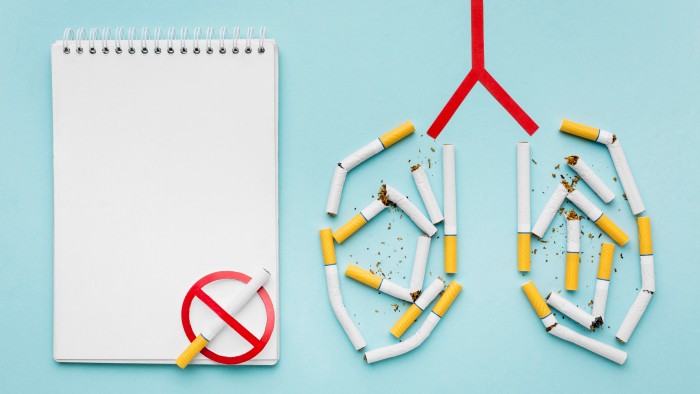IMANA NEWS
Why World No Tobacco Day 2025 Matters More Than Ever
29 May 2025

IMANA endorses the World Health Organization’s international campaign against tobacco. World No Tobacco Day 2025 is an annual awareness day on the 31st of May. It informs about the health, environmental, and economic risks of tobacco use. The campaign’s theme this year is “Unmasking the Appeal: Exposing Industry Tactics on Tobacco and Nicotine Products.”
The aim is to keep people from using tobacco. It also exposes the tricks and traps that draw young people, and others, into smoking. This year’s campaign aims to shed light on deceptive marketing, which plays down the negative effects of smoking and secondhand smoke. It stresses that nicotine is addictive, regardless of the product. Marketing tactics that sanitize its reputation and enhance its appeal can’t change this simple fact.
Creating Change Through Awareness and Action
The global effort goes beyond awareness. It also unifies stakeholders like schools, health organizations, and community leaders. These change agents urge governments to create laws that regulate and lower tobacco’s production, promotion, and prevalence.
Their joint efforts have allowed governments around the world to create laws that discourage tobacco use. Concrete measures like public smoking bans, restrictions on packaging and advertisements, and the implementation of excise taxes have resulted from their actions.
Hooked on Hookah, Ensnared by E-Cigarettes: Combating Tactics That Target the Youth
This year’s theme also addresses the growing consumption of flavored hookah and e-cigarettes. They attract young people with their flavor innovations and other marketing tactics. The industry presents them as superior alternatives, cool accessories, and confidence-boosting products that have a relaxing effect. Despite this misleading representation, e-cigarettes and hookahs are responsible for several health issues.
Hookah smoke carries toxic agents just like cigarette smoke, increasing the risk of cancer. Nicotine also harms brain development among adolescents and fetal development among pregnant women. Meanwhile, e-cigarettes like vapes are misrepresented as free of nicotine. But several of these products still have nicotine in trace amounts.
These “safer alternatives to smoking” attract old and young smokers with flavors and soothing smoking experiences. They end up smoking longer while increasing their exposure to cancer-causing smoke and aerosol.
Benefits of Not Smoking and Quitting Smoking
The benefits of not smoking and quitting smoking to health, the environment, and society in general far outweigh their advertised appeal.
Longer Life Expectancy
If you want to live longer, steer clear of smoking. A study shows that smokers lose at least one decade of their life compared to those who have never smoked. If smokers can quit before hitting 40, they reduce their risk of dying prematurely by 90%.
Lower Risk of Respiratory Illnesses
The lungs don’t function as well among smokers. Breathing may thus be harder. Quitting smoking can reduce the chances of developing respiratory issues, such as COPD and respiratory obstruction. People with COPD can also slow down the disease’s progression if they quit smoking. In addition, smoking cessation has been proven to alleviate respiratory obstruction and reduce cholesterol levels.
Lower Risk of Cardiovascular Diseases
Non-smokers and people who have quit smoking reduce their risk of dying from heart and vascular issues like:
- Inflammation
- Hypercoagulability
- Atherosclerosis
- Coronary heart disease
- Stroke
- Abdominal aortic aneurysm
- Cardiac arrest
- Heart failure
- Thromboembolism
- Peripheral arterial disease
- Atrial fibrillation
Quitting also raises high-density lipoprotein cholesterol levels and reduces cholesterol, especially when combined with other healthy lifestyle choices like a heart-healthy diet and physical activity.
Lower Risk of Cancer
Smoking is the biggest culprit behind most cases of lung cancer. It has thus been recognized as a public health threat. Hookahs, cigarettes, and e-cigarettes are widely recognized as carcinogenic. They can promote tumor growth along with damage to cells and DNA.
Kicking the habit can reduce your risk of developing 12 types of cancers, namely:
- Lung cancer
- Throat and oral cancer
- Bladder cancer
- Leukemia
- Cervical cancer
- Colorectal cancer
- Esophageal cancer
- Kidney cancer
- Liver cancer
- Pancreatic cancer
- Stomach cancer
- Voice box cancer
The Centers for Disease Control and Prevention (CDC) revealed that five years after quitting, former smokers are 50% less likely to get certain types of cancers.
Lower Risk of Poor Reproductive Outcomes
Women who quit smoking before or early in their pregnancy are less likely to deliver an underweight baby or go into labor preterm.
Meanwhile, men who smoke have lower semen, sperm count, and sperm motility. Discontinuing could help them restore semen quality.
Stronger Immunity
When people stop smoking, they give their bodies a stronger chance at combating inflammation-related infections and chronic diseases. Cutting down on smoking or quitting altogether improves and resets immune responses, according to one study.
Cleaner Air and Healthier Environment
Smoking leads to air pollution. It generates substances like carbon monoxide (CO) and respirable suspended particulates (RSP). These contaminants violate air quality standards, irritate respiratory passages, and may cause COPD or asthma.
Long-term exposure to these compounds can lead to serious cardiovascular illnesses and premature death.
In addition, manufacturing tobacco products wastes a lot of natural resources. The anti-tobacco organization, Action on Smoking & Health, shared that 600 million trees are lost every year to create these products. Every hour, the industry uses up four miles of paper to roll and package cigarettes.
IMANA Stands in Solidarity With World No Tobacco Day 2025
As a faith-inspired, professional organization, IMANA strongly discourages the use of tobacco. Due to its detrimental effects on one’s health, the habit is considered a form of self-harm and entails unnecessary waste.
This World No Tobacco Day, we encourage smokers and the public to learn more about the real effects of smoking. Beyond the glamorous and “cool” image that tobacco manufacturers want us to believe, smoking and secondhand smoke have far-reaching negative effects on personal health and wellness.